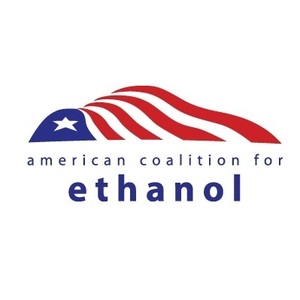ACE, industry groups urge CARB to recognize climate-smart farming

January 12, 2022
BY American Coalition for Ethanol
In a cosigned letter, the American Coalition for Ethanol, along with the Great Plains Institute, Low Carbon Fuels Coalition, the National Biodiesel Board, and Canadian Oilseed Processors Association, recommended the California Air Resources Board recognize the climate benefits of farming practices in California’s Low Carbon Fuel Standard. ACE Board Member Ron Alverson separately submitted comments to CARB in response to information requests on land use change.
Alverson draws CARB’s attention to the recent research paper “Biofuel Impacts of Food Prices Index and Land Use Change,” which according to him, shows “there is land use change related soil carbon change from biofuel feedstocks, and it is positive, not negative.” Alverson also explains how the food price index has the highest correlation with crude oil price, not biofuel. After outlining the discrepancies between model predictions and observed data, Alverson urges CARB to revise its assumptions predicting the impact of biofuel on food prices and indirect land use change.
This feedback complements the letter ACE cosigned, which provides principles for farm-level carbon intensity (CI) accounting originally developed through the work of the Midwestern Clean Fuels Initiative.
Advertisement
“…CARB would take a leading role in incentivizing carbon-smart farming practices in all locations that grow feedstock for LCFS fuel pathways, build knowledge regarding the short- and long-term effectiveness of various SCS [soil carbon sequestration] strategies, and speed fulfillment of California’s aggressive decarbonization goals,” the letter reads.
Quantifying greenhouse gas (GHG) emissions for biofuel feedstocks from farm practices and assigning corresponding CI scores results in major policy benefits, including:
Advertisement
- Compensating farmers, on a purely voluntary basis, for climate-smart farming practices; and
- Helping achieve scale more quickly and offering significant near-term GHG emission reductions compared to private programs with less attractive carbon prices for farmers.
Guiding principles set forth in the group letter to achieve these and other benefits, include:
- On-farm conservation measures should be voluntary and not required.
- Continuous improvements in climate-smart farming practices should be incentivized.
- Protocol design should strike a balance between precision and cost for farmers and producers. CARB should develop strategies for verification of practices that minimize cost where possible while still ensuring outcomes.
- GHG lifecycle assessment, including the assessment of climate-smart framing practices, should be non-proprietary, transparent, verifiable, and repeatable.
Stakeholders are actively leveraging USDA funds to establish a quantification and verification protocol that could support CARB’s inclusion of on-farm carbon benefits. The comments cite the ACE-led Expanding Soil Health Through Carbon Markets Regional Conservation Partnership Program (RCPP) in South Dakota, and broader efforts to replicate the program design to increase scientific robustness of key soil models across a variety of regions that could be used to access LCFS markets.
Related Stories
The USDA significantly increased its estimate for 2025-’26 soybean oil use in biofuel production in its latest World Agricultural Supply and Demand Estimates report, released July 11. The outlook for soybean production was revised down.
The U.S. Energy Information Administration maintained its forecast for 2025 and 2026 biodiesel, renewable diesel and sustainable aviation fuel (SAF) production in its latest Short-Term Energy Outlook, released July 8.
XCF Global Inc. on July 10 shared its strategic plan to invest close to $1 billion in developing a network of SAF production facilities, expanding its U.S. footprint, and advancing its international growth strategy.
U.S. fuel ethanol capacity fell slightly in April, while biodiesel and renewable diesel capacity held steady, according to data released by the U.S. EIA on June 30. Feedstock consumption was down when compared to the previous month.
XCF Global Inc. on July 8 provided a production update on its flagship New Rise Reno facility, underscoring that the plant has successfully produced SAF, renewable diesel, and renewable naphtha during its initial ramp-up.
Upcoming Events










